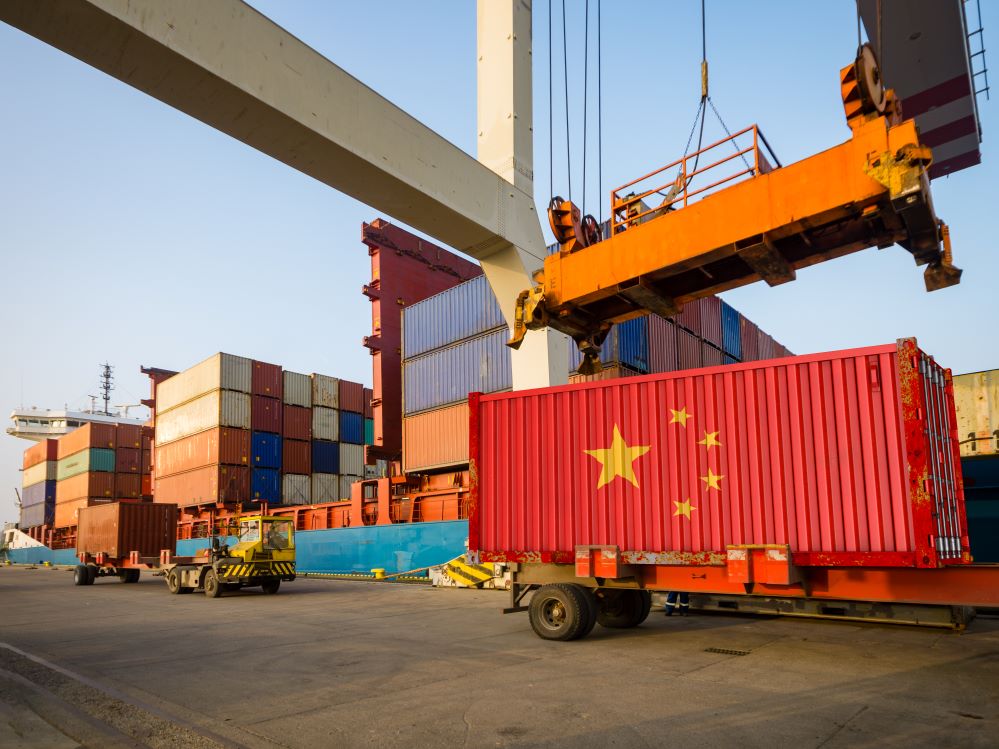
A nine-day lockdown in Shanghai could have repercussions that go far beyond impacting the lives of its 25 million citizens.
Fears are mounting that it will send yet another shockwave through an already wounded global supply network.
‘Severely impacted’
According to World Cargo News, the two-staged shutdown already means that all warehouses on the Pudong side of the Huangpu river in Shanghai are closed, as are some container depots.
Maersk has predicted that trucking services in and out of the city are likely to be “severely impacted, by 30%”.
It also reports that cargo ships are already stacking up outside the city, with some 300 now waiting to unload their goods – a number which is double what it was this time last year, and well ahead of the typical 50-55 average.
Major port
Shanghai handles the equivalent of 140,000 cargo containers a day.
Last year, a one-month slowdown at another major port, Yantian in Shenzhen, caused a backlog of thousands of shipping containers
Air cargo
But it is not just sea freight that is being impacted.
The Loadstar reports that airliner Cargolux has announced a suspension of flights from Shanghai Pudong Airport until at least 2 April.
Other airlines are said to be “watching” the situation and could change their schedules without notice.
Blow
Reports of new logistics slowdowns will be a further blow for companies already dealing with severe supply chain issues.
Speaking to the Independent, Rob Carnell, chief Asia economist at ING said: “China is the biggest single consumer of practically everything. It matters outside China. If China’s consumption is getting knocked down by Covid, it is going to be something that filters down the supply chain and affects countries in the region.”
China is the biggest trading partner for all of its neighbours, including Japan and South Korea, and its target of 5.5% economic growth now looks under threat.
‘Closed loop’
One glimmer of light is the fact that staff in financial industries can work from home, while automakers and other big manufacturers can continue to have employees working at factories in a “closed loop system” isolating them from contact with the outside.
General Motors Co. and Volkswagen AG have confirmed that their factories in Shanghai are so far operating normally.
GM added it was carrying out “contingency plans on a global basis” with suppliers to reduce Covid-related uncertainties.
Tesla woes
However, not all manufacturers have been able to cope the same. Fortune reports that Tesla’s Shanghai factory will remain closed till at least 31st March – causing a loss of production of around 2,000 cars.
Logistics companies are also reported to be switching to nearby Ningbo port in an attempt to prevent supply chain chaos around Shanghai.
Speaking to CBC, Bloomberg economist Chang Shu said: “So far the lockdown allows for continued operations at financial institutions and ports [but] anything beyond the current plan risks disruptions to financial flows and international trade."



